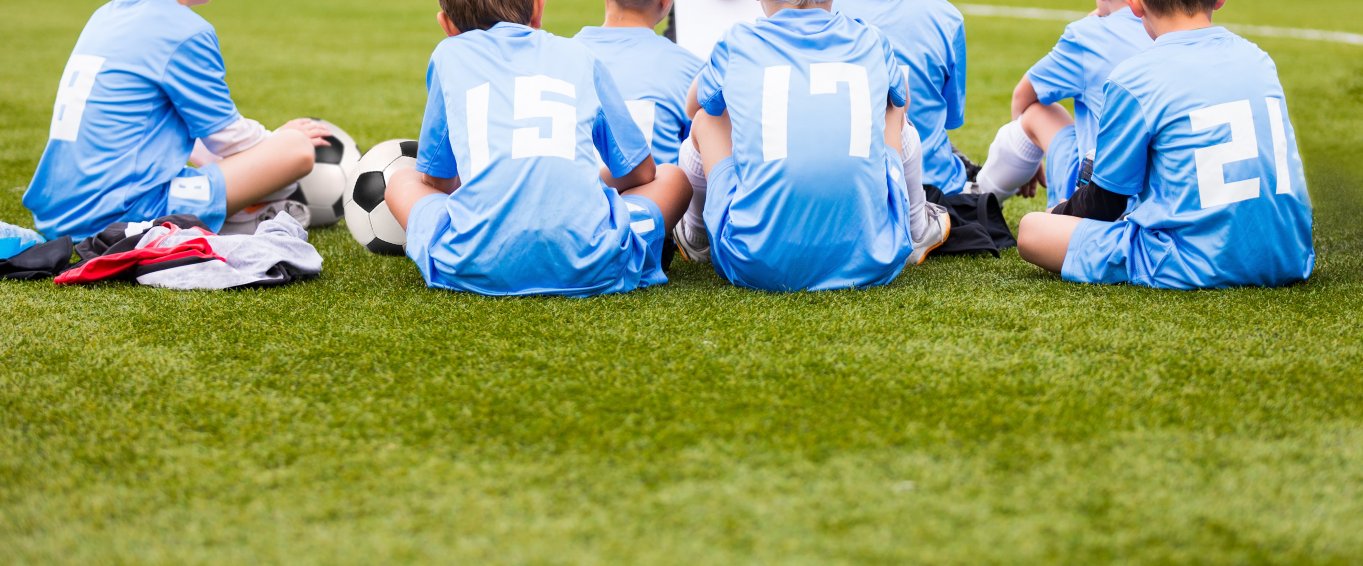Why Sporty Kids Get the Smartest Grades in School

In December, we explored some of the cognitive processes associated with academic performance and, specifically, kids' capacity for acquiring new skills. We dug deep into the impact of physical activity and healthy eating (and lack thereof) on brain power and the ability to focus, memorise and problem solve. Now, it's a new year and your chance to put these insights into action.
We know physical activity grows kids' brains. It boosts learning capacity by enlarging blood vessels and accelerating neurons. Nutritious foods - particularly fruits and vegetables - are essential for brain health because they're rich in the vitamins needed for efficient cognitive functioning.
But what of sport? We love sports here at Amaven. So, we're glad to say they benefit kids' ability to learn in many different ways. Participation in sports makes children smarter by creating new brain cells and neural connections, as well as increasing the flow of neurotransmitters. The result is better attention, reasoning and memory. Read our blog on clever catching to find out more.
Want your pupils to perform better in school? Increase sporting opportunities and look for creative ways to get children excited about playing. Here's why it's important:
Executive Function
Think of the brain's executive function as a hyper efficient project management tool. It regulates impulse control, manages the way we access information, enables us to handle multiple tasks and even schedules our thoughts.
Playing sports improves executive function by strengthening neural pathways in the brain. Cognitively engaging sports - particularly those requiring hand eye coordination - are dependent on neural connections. The larger their volume and frequency, the faster these connections move.
It enables kids to 'link' up different parts of the brain more quickly. The result is improved response times and faster fact recalls, as well as increased focus and better impulse management.
Top Sports: Dancing, Basketball, Martial Arts
Selective Attention
Selective attention is integral to learning, as it gives us the ability to focus on specific, valuable stimuli and ignore irrelevant ones. Classrooms, for example, are never completely quiet. They contain thousands of sounds, big and small, all happening at once. To concentrate on a task or set of instructions, children need to filter out everything from unrelated chatter to birds singing, pencils scratching, people walking, chairs squeaking and clothes rustling.
Sports participation improves the brain's selective attention. To succeed, kids must identify and focus on specific sights and sounds, while ignoring the primal urge to focus on whatever is new or different. There's only one caveat; at least a year of participation in fast paced sports is required for significant improvements to selective attention.
Educators say selective attention is a key component of learning. It has been found to correlate with reading and math abilities, regardless of general intelligence.
Top Sports: Tennis, Cricket, Climbing
Proprioception
It's true that proprioception is defined by physical actions - rather than thought patterns - but the two are closely connected. Proprioception is an awareness of how the body is moving. It prevents us from dropping objects, bumping into walls, tripping over our feet and colliding with other people. Like selective attention, it's the ability to quickly focus on a specific action or movement. To do this, proprioception calms and organises the order of our thoughts.
Playing sports that involve balancing is one way to improve proprioception. The better your form, the higher your degree of alertness and the easier it is to perform actions with discipline and precision. As well as helping kids concentrate, proprioception enhancing sports reduce anxiety and foster feelings of levelheadedness and wellbeing.
Proprioception helps us feel in control of our bodies. When children feel confident in their skin, they find it easier to focus. They exhibit more confidence and willingness to take on new challenges. Proprioception regulates focus so that hyperalertness doesn't become anxiety and lack of alertness doesn't prevent kids from recognising and processing information.
Top Sports: Swimming, Gymnastics, Football
To be successful at sports, children need a passion for playing. Mastery of the fundamental movement skills is the best way to help kids develop the competence they need to enjoy competitive sports.
Amaven Healthy Schools: In the MOVEMENT SKILLS section of your portal, you'll find a library of videos designed to help pupils develop fundamental movements like jumping, balancing, running and hopping. These bitesize skills sessions are perfect for use in PE!